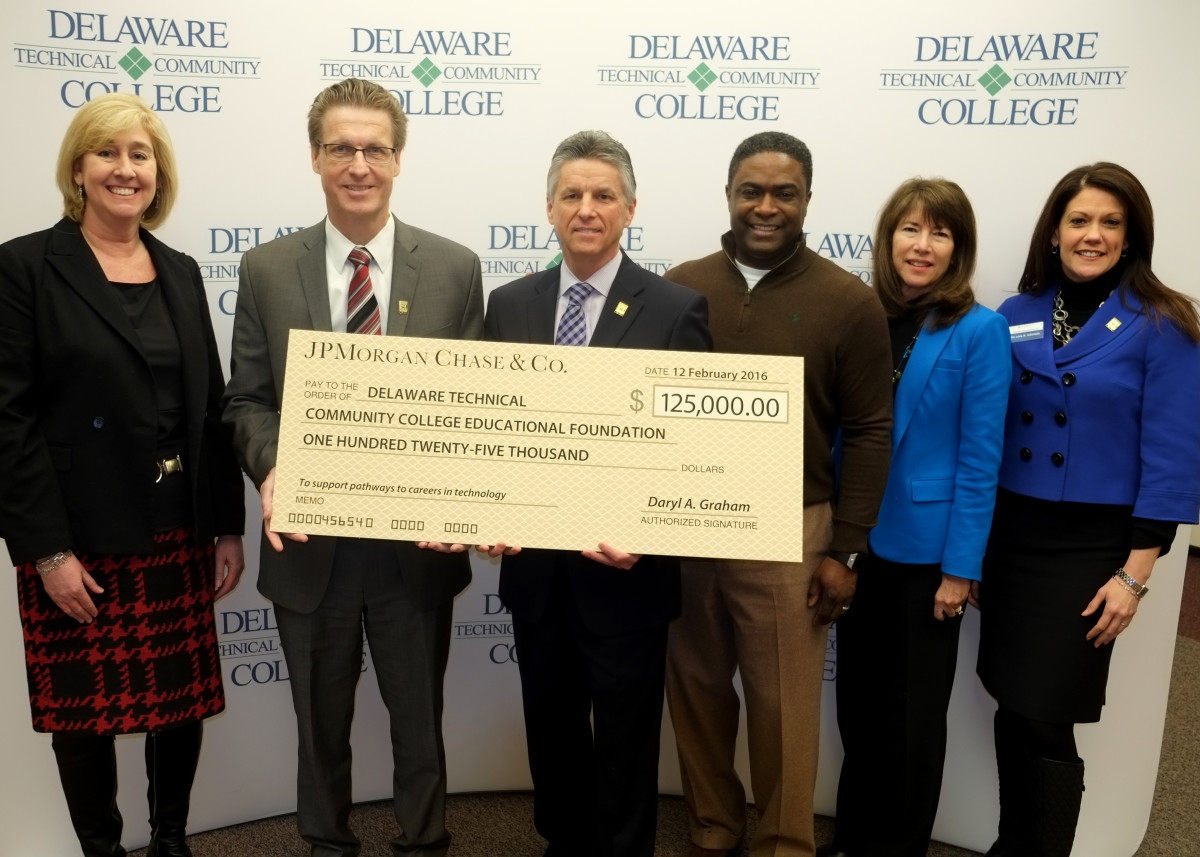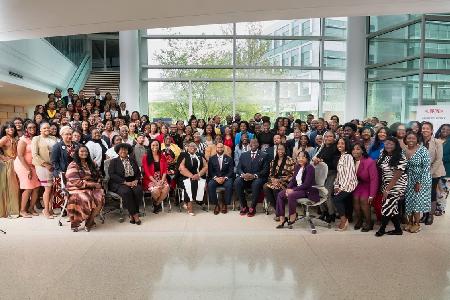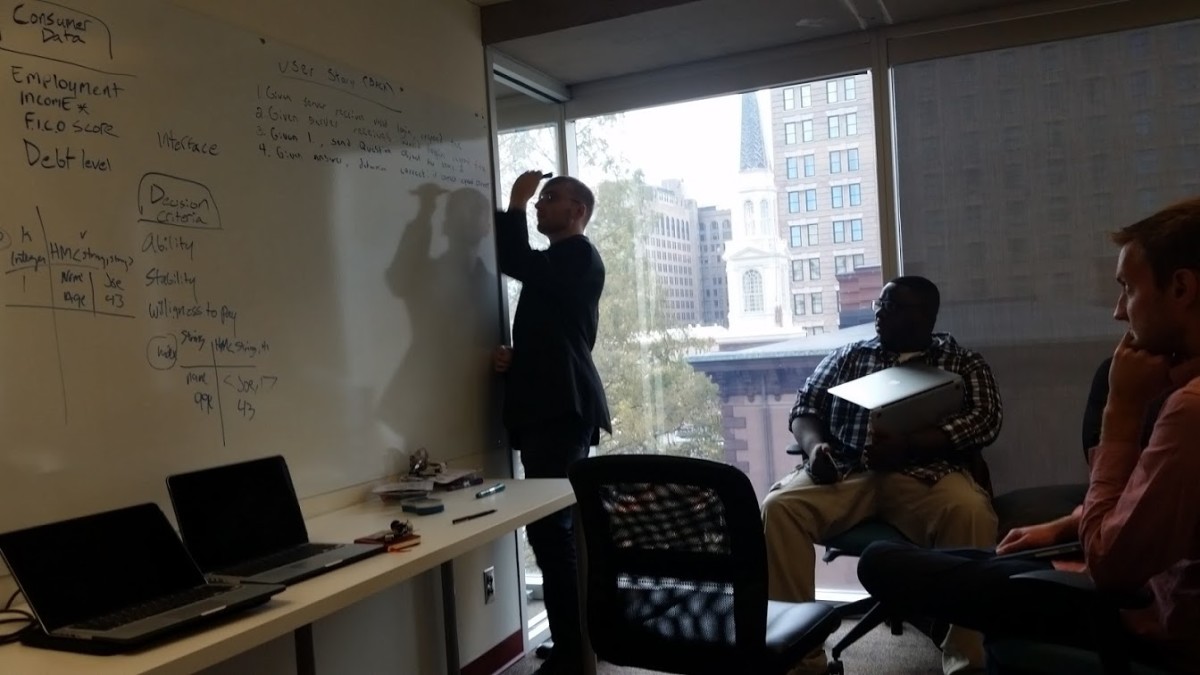In his recent state of the state address, Gov. Jack Markell mentioned the TechHire initiative and moving forward with it. With progress stemming from the federal initiative in the past year, it seems that Delawareans have taken his words and run with them.
But what exactly is TechHire, and what does it mean for Delaware?
The TechHire saga began at a meeting the governor called around Thanksgiving 2014, where he had a proposition for the state’s big financial employers, and others, including JPMorgan Chase, Capital One, Bank of America and Barclays. The U.S. Department of Labor and the White House had devised the TechHire initiative, and Delaware had the chance to be one of the first five states to give it a try. The main purpose of the effort, people at the meeting said they were told, is to grow the tech industry by building more (and better) ways to create more jobs.
We see the Delaware approach in particular with the strong leadership from the employers as a model for how to build a successful TechHire ecosystem.
At that November meeting, Damian DeStefano, an economic development policy adviser for Markell, said the governor asked representatives from those financial employers how they sourced talent for programming jobs.
“The answer, basically, was that, ‘We take it from each other because there’s not really a lot of it out there, and we end up hiring each others’ people and trading between ourselves,’” DeStefano said.
They agreed they were game to make a change and broaden the field of new talent.
“I think it’s definitely a great success of Delaware that we can all sit around the table together and can put different ways we might compete … aside and come together as a group and see what’s best for Delaware,” said Jennifer McDermott, an executive director at JPMorgan Chase who focuses on the chief administration office talent pipeline.
The fruit of the conversations that followed was Zip Code Wilmington, whose first cohort graduated with much success (and is now in the middle of its second class), and new offerings at Delaware Technical Community College.
The college found that Delaware employers looking for tech talent cared less about academic credentials compared with ability, so the school devised “academies” as shorter-term training programs.
“These academies … were created to address specific needs as specified by JPMorgan Chase, Christiana Care and Capital One,” said Mark Brainard, president of Delaware Tech.
After taking surveys from Delaware’s big employers, Delaware Tech decided that in several cases, those companies already have employees, perhaps at call centers, who just need additional skill-set training and can then be promoted within the company. From there, those people can grow their own tech staff and hire new people.
With that idea, Delaware Tech is customizing courses for people already working for these companies. The two big focal points, said Paul Morris, the college’s director of workforce development and community education programs, are software development and infrastructure.
He said reps from the financial sector asked for talent familiar with Java, so the college recruited people already working at the banks and started an inaugural Java course for them last week. Fifteen are enrolled, Morris said, and all are still working evenings and weekends.
Not all Java students are in banking. Troy Knox, bandleader and musician for EBE Events & Entertainment, is enrolled. “So far, the class is excellent, I feel so lucky to be involved in such a cool thing,” Knox said in an email.
The college also created the CISCO Academy, which comprises two programs. The first is a CISCO-certified network associate program and the second is at a higher level for network professionals.
Last year, about 120 students were interested in the network associate program, which ultimately enrolled 20, Morris said, and the first class graduated in August. Of those 20, 14 have passed the CISCO certification, and eight of them have received jobs thus far, Morris said, although he noted he’s still waiting to hear from others.
The next level of the academy for network professionals — in which a graduate would be able to change out a router and understand how to build a network’s infrastructure — will hold its first class in May.
Just last Friday, the college announced that it received a $125,000 grant from the JPMorgan Chase Foundation for its CISCO network professionals program, which will cover the cost of instructors, student recruitment and equipment and textbook and certification exam fees for students. Delaware Tech is also providing scholarships for tuition and fees to eligible students.

Delaware Tech’s president, Mark Brainard (center), holds the big check from the JPMorgan Chase Foundation. (Courtesy photo)
D.C.-based thinktank New America launched a program called Opportunity@Work at the same time TechHire began, and its first project has been working with cities and states trying out the initiative. By doing so, Opportunity@Work has developed learning networks for each TechHire community that involves phone calls every two weeks to offer support and discuss challenges and solutions, said Sally Smyth, Opportunity@Work’s director of business development.
Smyth said Delaware is on the right track with TechHire.
“We’re really excited about everything happening there,” she said.
But not all cities and states have taken the First State’s approach, she said, noting there are several ways to make TechHire successful. For example, Oregon is trying to reach a broader pool of potential employees by offering free online training modules that are open to all Oregonians over the age of 18. Participants can pass different levels of training online to qualify for eligibility to use federal workforce dollars to pay for more training, Smyth said, adding that Louisville, Ky., has a similar model.
Still, Smyth said Delaware employers’ level of specificity on job requirements — so that employees can get training to begin contributing on day one — has been key. “We see the Delaware approach in particular with the strong leadership from the employers as a model for how to build a successful TechHire ecosystem,” she said.
Additional funding will be an important part of moving TechHire forward, however.
DeStefano, from the governor’s office, said he’s focusing on applying for TechHire grant money, which has an application deadline of March 11.
Patrick Callihan, the executive director of Tech Impact (the organization that runs Zip Code Wilmington), said the federal government has made $100 million available nationally for TechHire, but that the money is harder to get now that 30 states have joined the initiative. “The maximum any one response can attract is up to $5 million, but even that’s pretty stringent, it’s more on the order of $4 million if we’re successful,” he said.
DeStefano said the money would go toward Zip Code and Delaware Tech’s programs and would also go toward other ways of expanding technical training throughout the state.
Callihan said there’s a particular demand for proficiency in .NET and Java programming in Wilmington because those are the languages financial institutions need for processing large transactions. He said he has hopes for TechHire’s continued success.
“In the long run, I’d love to see Delaware be a technology hub, that place where other companies are coming to find tech talent to help turn their businesses around,” Callihan said. “Then we’d know we’d won.”
Join the conversation!
Find news, events, jobs and people who share your interests on Technical.ly's open community Slack

Delaware daily roundup: DE innovation leaders; High schoolers win STEM competition; New Ladybug Fest location

Delaware daily roundup: Greentech digital glowups; AI versus dev jobs; New Biggs Museum website

Delaware daily roundup: Free biz analytics tool; AI tools for HR; Goodwill's recycling plan


